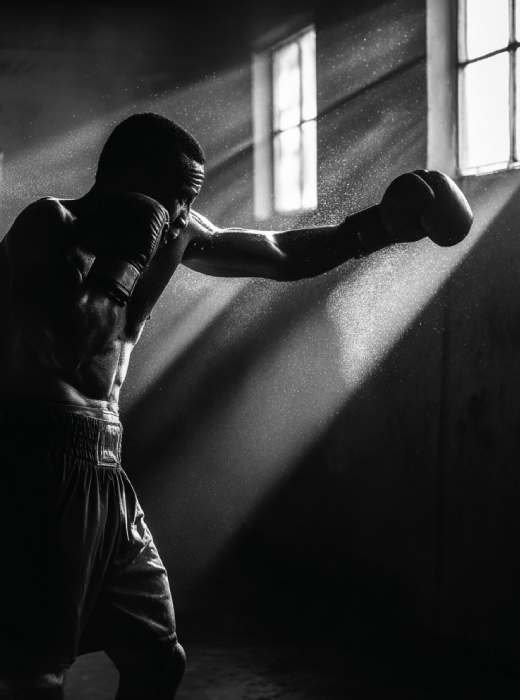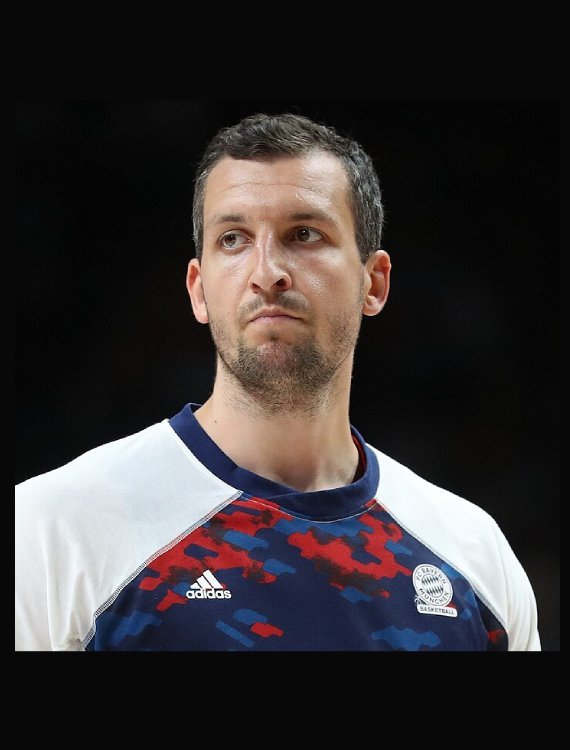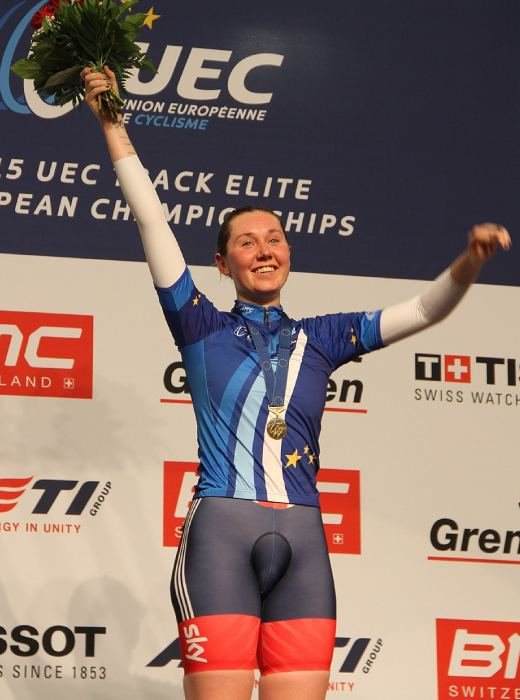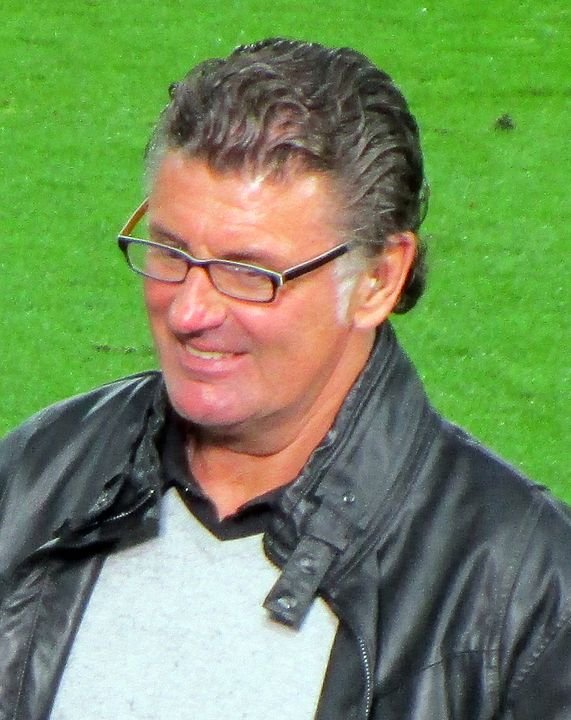How a Chechen refugee who once dodged bullets became Canada’s most compelling boxer
Picture this: you’re four years old, caught in an active war zone, and soldiers demand your name. Most kids would cower – but Arthur Biyarslanov, the Chechen boxer who’d later become Canada’s undefeated prospect, stared them down and declared, “I’m Chechen Wolf!”
That iconic moment didn’t come from bravado but from a survival instinct passed down by his father – a spark that would one day ignite the Canadian boxing scene. And those soldiers? They actually said, “Oh, we can’t let the Chechen wolf die.” Sometimes the universe has a twisted sense of humor about origin stories.
Twenty-five years later, that same kid is standing undefeated at 19-0 as a professional boxer, with 16 knockouts that hit harder than his childhood memories. But Arthur Biyarslanov’s story isn’t just about punching people for money—though he’s gotten pretty damn good at that too. It’s about what happens when you refuse to stay down, even when life keeps throwing haymakers at your head.
War Zone Origins: Arthur Biyarslanov’s Early Escape
Born Movladdin Biyarslanov in Makhachkala, Dagestan, Arthur Biyarslanov’s family originally hailed from Gudermes, Chechnya. The Second Chechen War that began in September 1999 turned their world upside down, forcing the family to flee when Arthur was barely out of diapers. His memories of that escape read like something out of a war movie – witnessing massacres, dodging rocket fire, fording freezing rivers while Russian soldiers carried him to safety.
“I have some memories playing around with family and friends, but the one biggest memory that I have is when we were crossing the border, when the war started, just shooting and bombing and soldiers throwing me around, carrying me, running away to a safe zone with me,” Arthur recalls.
The human cost of the Chechen conflict was staggering, but for Arthur, it was just Tuesday. Except Tuesday also meant losing his father, Xairudin, around the same time they escaped. Suddenly, his mother Alla was left to raise Arthur and his three siblings – Rustam, Bariyat, and Bella – while navigating the bureaucratic nightmare of refugee life.
Refugee to Champion: Six Years in Azerbaijan’s Camps
The family’s next stop was Azerbaijan, where they spent six years in that peculiar purgatory reserved for displaced people. Hundreds of thousands of refugees and internally displaced persons called Azerbaijan home during this period, many living in conditions that made cramped apartments look like luxury suites.
Arthur’s father had been a dentist, but in Azerbaijan, Xairudin earned pocket change helping other refugees. The family moved constantly, chasing cheaper rent and better opportunities that never quite materialized. It was the kind of instability that would break most people, but the Biyarslanivs had already survived worse.
“Life was very difficult,” Arthur remembers. “We were moving from place to place, my father was making very little money.”
Canadian Boxing Roots: Arriving in the Great White North
In 2005, when Arthur Biyarslanov was ten, the family finally caught their break: Canada. They landed in Halifax first, got the standard five-day refugee welcome wagon treatment, then settled in Toronto. If you think moving to a new city is tough, try doing it when you don’t speak the language, don’t know the culture, and have “new kid with the Russian accent” written all over your face.
“I didn’t know where this place was, to be honest… I came here, I didn’t know English, I didn’t have any friends. It was like a new life, new chapter, and it was probably at the hardest part of my life, because I just turned 10 years old when I got here,” Arthur admits.
But here’s where that Chechen wolf DNA kicked in. While other kids might have crumbled under the mockery and cultural isolation, Arthur channeled his inner survivor. “I always had a different mentality. I didn’t get pushed around too much… I think maybe it’s in the blood. We just have a fighting back background.”
Soccer became his salvation – a universal language that didn’t require perfect English. Through the sport, he learned the language, made friends, and discovered he was actually pretty good at this whole athletics thing. Who knew dodging bullets could translate to footwork?
Brother’s Keeper
Enter Rustam, Arthur’s older brother and the closest thing to a father figure he had left. In 2007, Rustam made a decision that would change everything: Arthur was going to learn how to box. Not for fun, not for fitness, but for survival. Rustam himself was “getting into a fight every day” when they first immigrated, dealing with cultural differences the hard way.
“My brother basically forced me into it,” Arthur laughs. “He was like, ‘You need to know how to defend yourself.'”
Arthur’s initial reaction? Pure hatred. “I really didn’t like boxing, because it’s a sport you don’t learn overnight… And then here I am getting thrown into sparring, and I’m getting hit, and I’m getting beat up by someone that looks weaker than me, or someone that’s smaller than me.”
The sport was humbling in ways that war and displacement somehow weren’t. “Honestly, I hated it, because I don’t like being bad at what I do… It’s a serious sport.”
Turning Point: From Hate-Boxing to Boxing Passion
Arthur’s first amateur bout nearly ended his boxing career before it started. A few months into training, he faced a more experienced opponent and got a reality check that would make his refugee experience look easy. “I even started to think boxing wasn’t for me.”
But then he looked across the ring and saw Rustam’s face. That was his turning point – not some grand epiphany, just a brother who believed in him when he couldn’t believe in himself.
From there, Arthur embarked on what he calls his “Revenge Tour.” He had a mental list of every gym member who had outclassed him in those early days, and he was determined to settle the score. “I had almost a list of guys in the gym who were better than me when I started boxing, and I wanted to go back and spar with them once I got good.”
A broken leg from soccer – ironic considering soccer had been his refuge – forced him to focus entirely on boxing. Sometimes the universe has to break your leg to show you your destiny.
Amateur Glory: Arthur Biyarslanov’s Rise
What followed was a masterclass in turning potential into performance. Arthur’s amateur career read like a highlight reel: Canadian Junior Champion in 2011, three-time Canadian champion overall, representation at the 2012 Youth World Championships at just 17.
But the real moment came at the 2015 Pan American Games in Toronto. Arthur won gold in the welterweight division, ending a 40-year drought for Canadian men’s boxing. That’s not just a personal victory – that’s carrying an entire nation’s hopes on your shoulders.
“It feels awesome. It was my goal to win gold for Canada, so I’m very happy. Canada hasn’t won a gold in men’s boxing for over 30 years, so I’m glad to have broken that and won a gold for Canada,” he said afterward.
Standing on that podium, Arthur Biyarslanov wasn’t just Canadian – he was a refugee who refused to stay down.
Olympic Journey: Rio 2016 and Beyond
The Pan Am gold earned him a ticket to the 2016 Rio Olympics, where he was the sole male boxer representing Canada. Talk about pressure. He won his first match, then lost in the Round of 16 to Germany’s Artem Harutyunyan. Not the fairy tale ending, but sometimes the journey matters more than the destination.
His amateur record when he hung up those gloves? 85 wins, 13 losses across 98 bouts. Not bad for a kid who initially hated the sport.
Pro Debut & Growing Pains in Super Lightweight
Arthur’s professional debut in December 2018 was vintage Arthur – a first-round knockout that announced he was serious about this career change. But the professional boxing world had its own lessons to teach.
He signed with Matchroom Sport in March 2019, but promotional issues slowed his progress to a crawl. For several years, he averaged just two fights annually, a frustrating pace for someone used to staying busy. “You don’t get paid until you fight,” became his reality check about professional boxing economics.
The promotional merry-go-round continued with stops at Probellum and Disrupt Promotions, but stability remained elusive. Between training camps, Arthur had to work – a humbling experience for an Olympic-level athlete.
Finding His Pack
The game-changer came in 2023 when Arthur joined Eye of the Tiger Management. Suddenly, he was fighting five times in 11 months – the kind of activity that builds careers and bank accounts.
“I am very happy to join the EOTTM family… I am very excited to fight more often where I feel at home, in Montreal!” Arthur Biyarslanov said.
His current record? An unblemished 19-0 with 16 knockouts (June 2025), good for an 84.21% knockout ratio. He’s ranked #15 in the WBC super lightweight division and eyeing bigger names. Training alongside Artur Beterbiev, another Chechen-Canadian boxing legend, provides both inspiration and motivation.
“It’s a big inspiration, big motivation,” Arthur says about working with Beterbiev. “He’s a modern legend in boxing.”
Fight Science: The Wolf’s Methodical Style
Arthur Biyarslanov’s boxing style reflects his journey – patient, methodical, always calculating the next move. He fights southpaw, uses a stiff jab to create openings, then delivers concussive finishes. His versatility draws from both Mike Tyson’s raw power and Roy Jones’ fluid movement.
“The science of Russian boxing, always being at the right distance, applying pressure intelligently, and a left that hurts,” is how his style has been described. That soccer background still shows in his footwork – proof that every chapter of his story contributed to the final product.
Beyond the Ring
But Arthur Biyarslanov’s definition of success extends far beyond win-loss records. He’s studying psychology at York University, pursuing a degree he put on hold for his Olympic dreams. His future plans include opening his own gym, providing opportunities for youth who might need the same refuge he found in sport.
He’s also an active anti-bullying advocate, sharing his experiences with mockery and prejudice to help others navigate similar challenges. “I want to remind people that I went through hardships with a positive attitude, and I overcame all this… everyone in the world needs to hear this kind of message.”
His advice to young refugees cuts straight to the heart: “Take advantage of it, because you get offered a lot of opportunities here like sports, education, freedoms. Life, I’d say, is a lot better here than in most of the countries in the world, so enjoy it to the max and take all the opportunities you can get!”
Champion’s Mindset: Undefeated Spirit & Ali’s Wisdom
Arthur Biyarslanov’s favorite quote comes from Muhammad Ali: “I hated every minute of training but I said ‘Don’t quit. Suffer now and live the rest of your life as a champion.'” It’s a philosophy forged in childhood trauma and refined through years of calculated punishment.
“I was bad when I started, and I like being good, so I kept going,” Arthur Biyarslanov explains with characteristic directness.
His goals for 2025? Break into the top 10 of his division, earn a title shot, and continue building his legacy both inside and outside the ring. He’s ready for the Teofimo Lopezes, Devin Haneys, and Ryan Garcias of the world.
Legacy of the Chechen Wolf: From Refugee to Underdog Hero
Arthur Biyarslanov’s story could have ended a dozen different ways – as a casualty of war, a refugee lost in the system, or just another talented athlete who never quite made it. Instead, it’s become something more powerful: proof that your worst days don’t have to define your best years.
From dodging bullets in Chechnya to dodging punches in the super lightweight division, Arthur Biyarslanov has carved an undefeated path through Canadian boxing history. His story – rooted in refugee resilience and fueled by knockout power—reminds fans and fellow fighters alike that an underdog from Makhachkala can rewrite the script on the world stage., from learning English on soccer fields to studying psychology in university, Arthur has consistently transformed adversity into advantage. His undefeated professional record is impressive, but his undefeated spirit is legendary.
“Everyone in the world needs to hear this kind of message,” he says, and he’s probably right. In a world that seems increasingly divided, Arthur Biyarslanov represents something universal: the refusal to be defeated by circumstances beyond your control.
The Chechen Wolf prowls on, and those soldiers from 25 years ago were right – you can’t let the wolf die. Sometimes you just have to let it evolve into something even more dangerous: a champion who fights not just for himself, but for everyone who needs to believe that tomorrow can be better than today.
That’s knockout power you can’t teach in any gym.
Hungry for more tales of triumph against all odds? Just like Arthur Biyarslanov’s saga, Emmanuel Wanyonyi’s story springs from the dust and dawn of hardship into the bright lights of Olympic glory. Born a herdsboy in the sun-baked plains of Kenya, Emmanuel turned every grueling training run into a step closer to gold. Discover how he transformed poverty into podiums in “From Herdsboy to Olympic Gold: The Extraordinary Journey of Emmanuel Wanyonyi.”
Photo by InspiringAthletes.com




